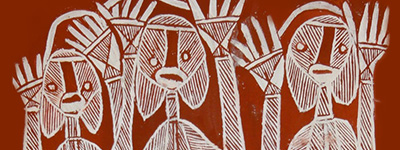Bininj Kunwok
Triangular Kinship Terms

berlunghkowarre
|
Audio |
|
|---|---|
|
Word Stem |
berlunghkowarre |
|
Etymology |
berlu[ngh] 'FZ' + -ko dyadic suffix + -warre 'affinal suffix' |
Definitions |
|
|
#1 |
berlenghkowarre/berlunghkowarre: you are my skewed son (nganemodjarrkdorrinj MBS>S), my brother, your skewed F (ngune-modjarrkdorrinj FZS>F). More generally,
|
|
#2 |
berlunghkowarre you are my mamamh ‘MF(Z)’, my sister, your mamamh. More generally,
|
|
#3 |
berlenghkowarre you are my skewed son (nganemodjarrkdorrinj MBS>S), my brother, your skewed F (ngune-modjarrkdorrinj FZS>F). More generally,
|
|
#4 |
berlenghkowarre you are my skewed son (nganemodjarrkdorrinj MBS>S), my brother, your skewed F (ngune-modjarrkdorrinj FZS>F). More generally,
|
|
#5 |
berlenghkowarre you are my skewed son (nganemodjarrkdorrinj MBS>S), my sister, your skewed FZ (ngunemodjarrkdorrinj FZD>FZ). More generally,
|
|
#6 |
berlenghkowarre you are my kangkinj ‘ZC’, my sister, your MeZ. Speaker is male (?) because the -warre marks cross sex sibling taboo? Probably not, because when the referent is male (my brother, your MB) the term is still the same. More generally,
|
|
#7 |
berlenghkowarre synonym = yeng you are my BIL, my sister, your wife. When addressing a tabooed/respected kin such as B-I-L it seems reference to one’s sister becomes more markedly indirect as evidenced by the synonym term ‘yeng’ which is a dysphemism and polyseme that semantically extends to ‘sickness/infection’, ‘rainbow serpent’ or ‘visual illusion’. The nature of the relationship between these extentions is not entirely clear. More generally,
Seems to have collapsed a whole section with part of another section (the F/FZ/na-kurrng section) |
|
#8 |
berlenghkowarre variant term = berlonghkowarre you are my mamamh ‘MF(B)’, my mawah ‘FF’, your kanjok ‘cross cousin’. More generally,
Seems to have collapsed a whole section with part of another section (the F/FZ/na-kurrng section) |
|
#9 |
Also berluhkowarre, berluhkawarre.
It is not clear if there is a contrast between berluhkowarre and berlunghkowarre. Another variant in pronunciation is the vowel change o>a to give berluhkawarre. In terms of centricity, the fact that the term clearly contains the stem for FZ ‘berlu’ indicates altercentricity but the affinal/tabooed kin suffix marks an egocentric relationship i.e. the referent is the speaker’s sister-in-law. |
|
#10 |
berluhkawarre (variant term = berluwarre) you are my C (male speaker), my Z, your FZ. It is not clear if there is a contrast between berluhkowarre and berlunghkowarre. Another variant in pronunciation is the vowel change o>a to give berluhkawarre. In terms of centricity, the fact that the term clearly contains the stem for FZ ‘berlu’ indicates altercentricity but the affinal/tabooed kin suffix marks an egocentric relationship i.e. the referent is the speaker’s sister-in-law. |